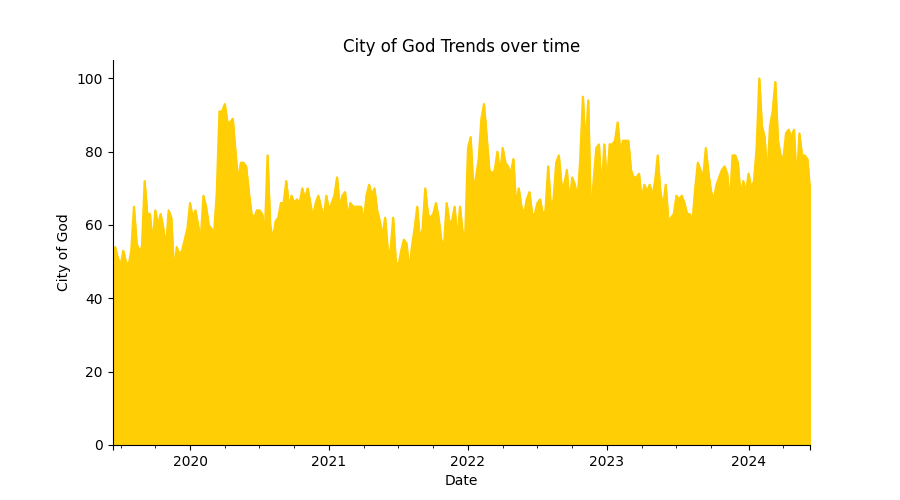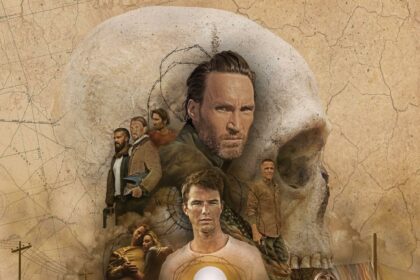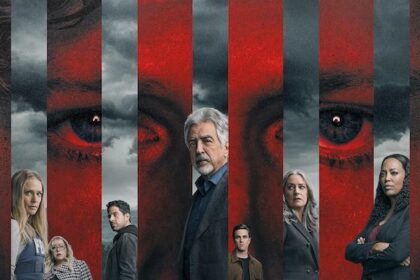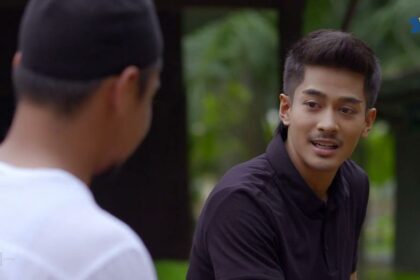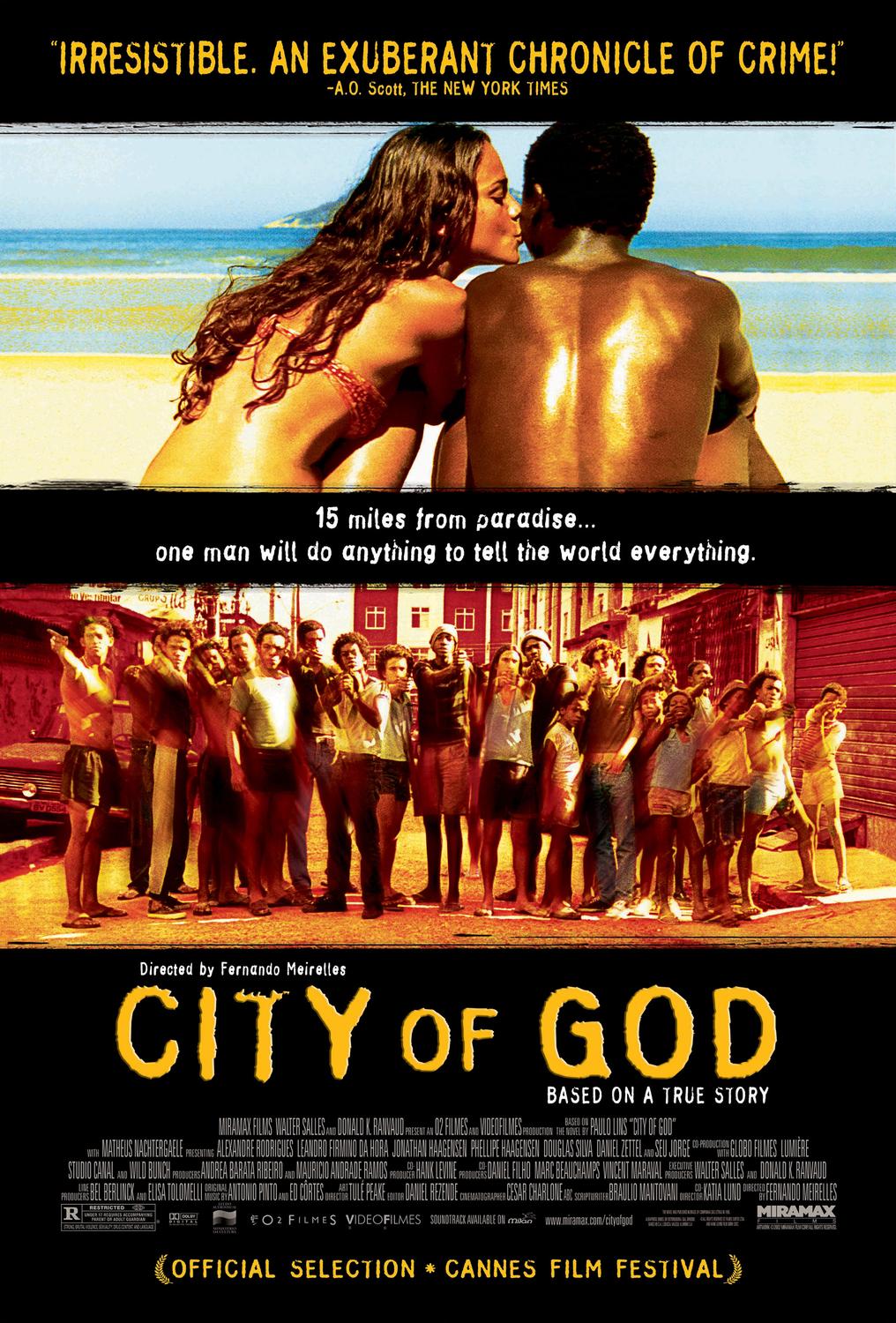
🪶 Story & Synopsis
In the bustling and dangerous slums of Rio de Janeiro lies the City of God, where the paths of two young boys diverge drastically. This captivating narrative unfolds in the 1960s, following the exploits of the Tender Trio – a group of amateur thieves consisting of Shaggy, Clipper, and Goose. Their daring escapades inspire admiration in the younger boys of the neighborhood, including Li’l Dice, whose thirst for power sets off a chain of events that will shape the future of the City of God.
As the story progresses into the 1970s, Li’l Zé emerges as a ruthless kingpin, dominating the city with violence and fear. His only anchor to sanity is his loyal friend, Bené, who struggles to keep him from descending further into madness. Meanwhile, Rocket, a young boy with dreams of becoming a photographer, watches from the sidelines as the power dynamics of the neighborhood shift dramatically.
By the 1980s, the once vibrant community is torn apart by the brutal conflict between the remaining rival gangs, leaving chaos and destruction in its wake. Rocket, now caught in the midst of this turmoil, finds himself entangled in a world of crime and bloodshed that he had desperately tried to avoid.
Through Rocket’s lens, we witness the harrowing tale of City of God unfold, showcasing the stark contrast between innocence and corruption, childhood dreams and harsh realities. As he navigates through the treacherous streets, Rocket’s only solace lies in capturing the truth of his surroundings through his photographs, hoping to shed light on the darkness that has consumed his once vibrant community.
Based on a semi-autobiographical novel, “City of God” delves deep into the heart of Rio’s notorious slums, painting a vivid portrait of a society plagued by poverty, crime, and unbridled ambition. As the lives of its inhabitants intertwine and collide, we are drawn into a gripping narrative that explores the fragile line between childhood innocence and the brutal nature of survival in a world where power reigns supreme.
🧑 Cast & Crew
Alexandre Rodrigues, Leandro Firmino, Phellipe Haagensen, Douglas Silva, Jonathan Haagensen, Matheus Nachtergaele, Seu Jorge, Jefechander Suplino, Alice Braga
| Actor | Role |
|---|---|
| Alexandre Rodrigues | Buscapé / Rocket |
| Leandro Firmino Da Hora | Li’l Dice |
| Jonathan Haagensen | Shaggy |
| Phellipe Haagensen | Benny |
| Douglas Silva | Li’l Dice |
| Daniel Zettel | Steak and Fries |
| Seu Jorge | Knockout Ned |
💬 Reviews and feedback
Welcome to the electrifying world of “City of God”! This movie is like a rollercoaster ride through the streets of Rio de Janeiro, where every twist and turn keeps you on the edge of your seat. Just like trying to navigate a bustling city without Google Maps, this film takes you through the intricate maze of gang life and survival in the favelas.
Imagine if Robin Hood traded his bow for a gun and swapped Sherwood Forest for the chaotic streets of Brazil. That’s the kind of moral ambiguity you’ll find in “City of God”. The film delves into the classic battle between good and evil but paints it with vibrant colors and gritty realism that sets it apart from traditional narratives.
The director’s raw style coupled with an exceptional soundtrack creates a symphony of chaos and beauty that appeals to a diverse audience. It’s like mixing salsa with your morning cereal; unexpected but strangely satisfying. Each scene flows seamlessly from one challenge to the next, keeping you hooked till the very end.
- Plot and Themes: “City of God” is not just about gang life; it’s a critique on globalization, showcasing how violence thrives in marginalized communities due to political neglect. The narrative weaves through decades, giving us a glimpse into the evolution of crime amidst social upheaval.
- Acting and Characters: The performances are so authentic that you forget you’re watching actors. The characters feel like old friends from a rough neighborhood, each with their own struggles and motivations that add layers to the story.
- Direction: The director’s vision is palpable in every frame. From intense action sequences to quiet moments of reflection, each scene is crafted with precision, drawing you deeper into the world of “City of God”.
- Cinematography and Production Design: The cinematography captures the raw beauty of Rio de Janeiro, blending stunning visuals with gritty realism. The production design immerses you in the chaotic yet vibrant world of the favelas.
Now, let’s address the elephant in the room – violence. Yes, “City of God” doesn’t shy away from portraying brutality, but it does so with purpose. It’s like adding spice to a dish; it enhances the flavor without overpowering everything else. So, if you have a low tolerance for intense scenes, maybe keep some tissues handy for emotional support.
Binge-watching Tip: To fully appreciate “City of God”, immerse yourself in Brazilian culture beforehand. Listen to some samba music or watch documentaries about Rio de Janeiro to enhance your viewing experience.
So, is “City of God” worth watching? Absolutely! It’s a cinematic masterpiece that will stay with you long after the credits roll. Whether you’re a fan of gripping dramas or simply enjoy exploring different cultures through film, this movie has something for everyone.
Now, grab some popcorn (or maybe some brigadeiros for an authentic Brazilian touch) and prepare yourself for an unforgettable journey through the streets of “City of God”. Just remember to buckle up because this ride is going to be one wild adventure!
RATING: 9/10
In conclusion, “City of God” isn’t just a movie; it’s an experience that challenges your perceptions and leaves you questioning societal norms long after it ends. So go ahead, dive into this whirlwind tale of survival and ambition set against the backdrop of Rio’s bustling favelas. Who knows? You might just discover a new favorite among foreign films!
| Pros | Cons |
|---|---|
| Classic struggle between right and wrong portrayed in a new way | Focus on criminal acts and violence |
| Raw directing style | Violence involving children shown |
| Great soundtrack | Some blood and gore scenes |
| Appeals to a diverse audience | Adults and children brandishing firearms frequently |
| Seamless plot development from challenge to challenge | Violence can be disturbing for some viewers |
| Effective critique of globalisation | Isolation by political classes highlighted |
| Beautiful cinematography | Violence is a central theme |
| Powerful storytelling | Not suitable for younger audiences |
| Intoxicating assault on the senses |
Feedback
-
City of God (2002 film) - Wikipedia
City of God(2002 film)
City of God Brazilian Portuguese Cidade de Deus Directed by Screenplay by Bráulio Mantovani Based on City of God by Paulo Lins
Produced by - Andrea Barata Ribeiro
- Maurício Andrade Ramos
Starring Cinematography César Charlone Edited by Daniel Rezende Music by - Antônio Pinto
- Ed Cortês
Productioncompanies
-
City of God (2002) - Plot - IMDb
- In the slums of Rio, two kids’ paths diverge as one struggles to become a photographer and the other a kingpin.
- Brazil, 1960s, City of God. The Tender Trio robs motels and gas trucks. Younger kids watch and learn well…too well. 1970s: Li’l Zé has prospered very well and owns the city. He causes violence and fear as he wipes out rival gangs without mercy. His best friend Bené is the only one to keep him on the good side of sanity. Rocket has watched these two gain power for years, and he wants no part of it. he keeps getting swept up in the madness. All he wants to do is take pictures. 1980s: Things are out of control between the last two remaining gangs…will it ever end? Welcome to the City of God.—Jeff Mellinger <jeffmellinger@astound.net>
- During their childhood, several children raised in one of the violent neighborhoods of Rio de Janeiro see galling and nettlesome behaviors that turn some into criminals and some into poltroons; while one photographer boy in the middle stays out of their informal war until it’s finished and then narrates the complicated story of what happened in that neighborhood and the ascending process of crime between men who were once innocent children.—J. S. Golden
- Set in a notorious slum of Rio – Cidade de Deus / City of God – the story of a boy who sees his friends and brother grow up or aspire to be gangsters, and decides to do something else. Meanwhile we also see the power struggles in the neighbourhood, how they developed, who the main protagonists are and the state of their feud.—grantss
- City of God is based on a semiautobiographical novel with the same name originally published in 1997. It takes place in the ’60s where in the slums of Rio de Janeiro two boys growing up in the neighborhood take on different paths in life. The story is told through the eyes of Buscape, a poor young fisherman’s son who dreams of becoming a photographer one day. His story narrates the violence and corruption surrounding the city and the rise and fall of one of the city’s most notorious bosses, Li’l Ze. As war wages on the streets Buscape’s only way out of this violent life is to expose its brutality to the world through his pictures. Along the way the lives of others are put into perspective as their stories intersect with the events that take place.—Hax9 – Hax_9@hotmail.com
- Chickens are being prepared for a meal. A chicken escapes, and an armed gang chases after it in a Favela called the Cidade De Deus (“City of God”). The chicken stops between the gang and a young man named Rocket (Alexandre Rodrigues), who believes the gang wants to kill him. A flashback traces Rocket, the narrator, back to the late 1960s.In the 1960s, the Favela is a newly built housing project far from the center of Rio De Janeiro, with little access to electricity and water. Three impoverished, amateur thieves known as the “Tender Trio” – Shaggy (Jonathan Haagensen), Clipper (Jefechander Suplino), and Goose (Renato De Souza) – rob and loot business owners; Goose is Rocket’s brother. The thieves split part of the loot with the citizens of the city and are protected by them in return. Several younger boys idolize the trio, and one, Li’L Dice (Douglas Silva), convinces them to hold up a motel and rob its occupants.The gang resolves not to kill anyone and tells Li’L Dice to serve as lookout. They give him a gun and tell him to fire a warning shot if the police arrive, but an unsatisfied Li’L Dice fires a warning shot mid-robbery and guns down the motel inhabitants once the gang have run off. The massacre brings police attention, forcing the trio to split up: Clipper joins the church, Shaggy is shot by the police while trying to escape the Favela, and Goose is shot by Li’L Dice after taking the thieving boy’s money while Li’L Dice’s friend Benny (Phellipe Haagensen) watches. The story of the Tender Trio comes to an end. Li’L Dice escapes the Favela and works petty crimes with Benny to keep the money flowing. But one day, he realizes that the real bucks are in drugs, and the major trade in the Favela is owned by Carrot and his dealers, including Blackie.Some years later in the 1970s, the Favela has transformed into an urban jungle. Rocket has joined a group of young hippies. He enjoys photography and likes one girl, Angelica (Alice Braga), but his attempts to get close to her are ruined by a gang of petty criminal kids known as “The Runts”. Li’L Dice now calls himself “Li’L Zé” (Leandro Firmino Da Hora), and along with Benny he has established a drug empire by eliminating all of the competition, except for one dealer named Carrot (Matheus Nachtergaele), and forcing Carrot’s manager Blackie (Neguinho) to work for him instead.A relative peace has come over the City of God under the reign of Li’L Zé, who avoids police attention by having an initiate kill a Runt. Zé plans to kill Carrot, but Benny talks him out of it. Ze’ believes that Carrot is protecting the Runts in his section. Runts do hold ups in the Favela and that brings the police, which is bad for business all around. Carrot tells Ze’ to mind his own business.Ze’ decides to take on the Runts himself and shoots one of them. Rocket takes a job at the supermarket. Benny, who is now involved with Angelica, decides to leave the City. During the farewell party, Zé is distracted, and Blackie accidentally kills Benny while trying to shoot Li’L Zé. As Benny was the only man holding Zé back from taking over Carrot’s business, his death leaves Zé unchecked, and Carrot kills Blackie for endangering his life.Following Benny’s death, Zé beats up a peaceful man named Knockout Ned (Seu Jorge) and rapes Ned’s girlfriend (just because one day Ze’ laid his eyes on Ned’s girl, who refused to return his affections). After Ned’s brother stabs Zé, his gang retaliates by killing his brother and firing on Ned’s house and killing his uncle. Ned, looking for revenge, sides with Carrot, and a war breaks out between Carrot and Zé.In the early 1980s, both sides enlist more “soldiers”. Zé provides weapons for the Runts, and eventually the reason for the war is forgotten. One day, Zé has Rocket take photos of him and his gang. After Rocket leaves his film with a friend who works at a newspaper office downtown, a female reporter publishes one of the prints, a major scoop since nobody can get into the City of God anymore. Rocket believes his life is endangered, as he thinks Ze will kill him if he returns to the Favela; the reporter takes him in for the night, and he loses his virginity to her.Rocket agrees to continue taking photographs, not realizing Zé is very pleased with increased notoriety. Rocket returns to the City for more photographs, bringing the film back to the opening scene. Confronted by the gang, Rocket is surprised that Zé asks him to take pictures, but as he prepares to take the photo, the police arrive, and then drive off when Carrot arrives. In the gunfight, Ned is killed by a boy who has infiltrated his gang to avenge his father: a security guard who was killed by Ned during a bank robbery. The police capture Li’L Zé and Carrot, planning to give the media Carrot, whose gang never paid off the police, while they steal Zé’s money and let him go. Rocket secretly photographs the scene. Zé is murdered by the Runts who intend to run the criminal enterprise themselves. Rocket photographs Zé’s dead body and brings both pictures back to the newspaper.Rocket contemplates whether to publish the photo of the cops, exposing corruption and becoming famous, or the photo of Li’L Zé’s body, which will get him an internship at the newspaper. He decides on the latter and the film ends with the Runts walking around the City of God, making a hit list of the dealers they plan to kill to take over the drug business, including the Red Brigade.
Contribute to this page
Suggest an edit or add missing content
-
City of God | Rotten Tomatoes
City of Godoffers a shocking and disturbing — but always compelling — look at life in the slums of Rio de Janiero.
City of GodWhere to WatchCity of God
Rent City of God on Fandango at Home, Apple TV, or buy it on Fandango at Home, Apple TV.
What to KnowCritics ReviewsAudience ReviewsMy RatingCast & Crew
Fernando MeirellesDirectorAlexandre RodriguesBuscapé – RocketLeandro FirminoZé Pequeno – Li’l ZéPhellipe HaagensenBenê – BennyDouglas SilvaDadinho – Li’l DiceJonathan HaagensenCabeleira – Shaggy
⚠️ Explanation (Spoiler)
In the movie “City of God,” directed by Fernando Meirelles and Kátia Lund, the story unfolds in the poverty-stricken favelas of Rio de Janeiro, Brazil. The narrative revolves around two main characters, Rocket and Lil Zé, who navigate the treacherous world of organized crime in their community. As the plot progresses, their paths diverge, leading to a climactic ending that evokes a range of emotions.
The film’s conclusion is both tragic and thought-provoking, shedding light on the cyclical nature of violence and its profound impact on individuals and society. In the final sequences, Rocket, now a successful photographer, returns to his old neighborhood, City of God. As he roams the streets once dominated by Lil Zé’s gang, he witnesses the changes time has brought.
Rocket’s homecoming to City of God is imbued with nostalgia and melancholy. Through his camera lens, he captures moments of children playing soccer, symbolizing hope and innocence amidst the surrounding chaos. However, his journey takes a dark turn when he witnesses a young boy being pursued by drug dealers, underscoring the perpetuation of violence despite Rocket’s personal escape from his past life.
An impactful moment unfolds when Rocket reunites with his childhood friend Benny at a party. Benny, a significant figure in Rocket’s life, aspired to break free from City of God and its criminal influences. Tragically, Benny’s life was cut short by Lil Zé’s gang earlier in the narrative.
During their conversation, Benny’s dreams of a different life emphasize the lost potential resulting from the pervasive violence and poverty in their environment. This revelation deepens Benny’s character, emphasizing the constraints that hinder many from transcending their circumstances.
The movie’s final scene symbolizes the unending cycle of violence. Rocket gazes at the vast ocean from a beach, representing the prospect of a fresh start. Yet, as he departs, distant gunshots serve as a stark reminder that violence persists in City of God, despite Rocket’s personal liberation.
The conclusion of “City of God” elicits conflicting emotions in viewers. While there is a sense of relief that Rocket has broken free from the cycle of violence, there is also a prevailing sadness for those ensnared in it. The film prompts reflection on the harsh reality that many individuals remain trapped in this vicious cycle.
Ultimately, the ending of “City of God” serves as a poignant reflection on the repercussions of violence and poverty on individuals and communities. It underscores the struggle for survival in an environment where crime often appears as the sole recourse. The film’s closing scenes leave viewers with a blend of hope and despair, underscoring the potential for change alongside the sacrifices and ongoing efforts required to break free from the pervasive cycle of violence.
👪 Parents Guide & Age Rating
R
Age Rating:
This movie is rated R for strong brutal violence, sexuality, drug content, and language. The content of the film is not suitable for children under 17 years old without parental guidance.
Parental Guide:
Sex & Nudity:
- There are brief shots of nudity in the movie, with full frontal nudity covered by a character’s hands. A bare-chested man gets out of bed, and there is a scene in a hotel where a woman’s butt is seen extremely briefly. The sexual content is not graphic but includes explicit dialogue.
Violence & Gore:
- The movie contains non-stop violence and frequent deaths, including the murders of main characters. There are explicit references to sexual violence. The violence depicted can be intense and disturbing.
Profanity:
- The film contains strong language and homophobic slurs throughout.
Alcohol, Drugs & Smoking:
- There are scenes depicting drug content and substance abuse.
Frightening & Intense Scenes:
- The movie is intense throughout, with very few scenes where characters are safe from peril. The themes and violence portrayed may be hard to watch for some viewers.
Parents should be aware that “City of God” is a powerful and intense film that deals with mature themes and contains graphic content. It is recommended for mature audiences due to its portrayal of violence, sexuality, and drug abuse. Viewer discretion is advised, especially for younger audiences.
📺 Streaming and where to watch
| streaming service | extra information |
|---|---|
| Amazon Prime Video | City of God is currently available to stream on Amazon Prime Video with Cinemax add-on. |
| Apple TV | City of God is currently available on Showtime Apple TV Channel. |
| Google Play | City of God can be rented or bought on Google Play Movies. |
| YouTube | City of God can be rented or bought on YouTube. |
| Vudu | City of God can be rented or bought on Vudu. |
❝ Quotes and Cult
If you run it will get you. If you stay it will eat you.
One man will do anything to tell the world everything
I can read only the pictures
🤖City of God Reddit Talks
City of God: A Film that Explores the Escalation of Violence and Poverty
Overview:
Fernando Meirelles’ 2002 film, City of God, is a critically acclaimed Brazilian ensemble film that delves into the harsh realities of life in the Cidade de Deus slum of Rio de Janeiro. The film follows the lives of several characters as they navigate the violent and poverty-stricken environment, showcasing the devastating effects of crime and inequality.
Themes:
- Escalation of Violence: The film highlights the gradual escalation of violence in the favela, from petty robberies to organized cocaine wars, mirroring the real-life trajectory of many Brazilian slums.
- Poverty and Inequality: City of God unflinchingly depicts the extreme poverty and social inequality that plague the favelas, emphasizing how these conditions contribute to crime and violence.
- Struggle Between Right and Wrong: The film presents a complex moral landscape, exploring the characters’ choices and the consequences of their actions, ultimately questioning the boundaries between right and wrong.
Critical Reception:
City of God has received widespread critical acclaim for its raw and authentic portrayal of life in the favelas. It has been praised for its stunning cinematography, gripping storytelling, and powerful performances. The film has garnered numerous awards, including the BAFTA Award for Best Foreign Language Film and the Golden Globe Award for Best Foreign Language Film.
Controversies:
Despite its critical success, City of God has also sparked controversy. Some critics have argued that the film glorifies violence and poverty, while others have questioned the ethics of using non-professional actors from the favelas.
Impact:
City of God has had a profound impact on Brazilian cinema and society. It has raised awareness of the challenges faced by favela residents and has inspired other films that explore similar themes. The film’s success has also helped to put Brazilian cinema on the international map.
Personal Perspectives:
Viewers of City of God have shared diverse opinions and reactions to the film:
- Some viewers found the film to be a powerful and moving portrayal of life in the favelas, while others found it to be too violent and disturbing.
- Many viewers appreciated the film’s raw and authentic style, while others felt that it was too stylized and unrealistic.
- The film’s depiction of poverty and violence has sparked discussions about the need to address social inequality and improve living conditions in the favelas.
Top discussions
- https://www.reddit.com/r/movies/comments/13in7ql/city_of_god_2002_is_a_miracle_of_a_movie/
- https://www.reddit.com/r/movies/comments/2gz7d1/just_watched_city_of_god_what_are_your_thoughts/
- https://www.reddit.com/r/TrueFilm/comments/tym0kj/city_of_god_who_are_the_good_guys/
- https://www.reddit.com/r/movies/comments/u5nzhd/city_of_god_and_the_chilling_indifference_to/
- https://www.reddit.com/r/movies/comments/qh76ll/just_want_to_talk_to_someone_about_city_of_god/
❓ Frequently Asked Questions
What is the true story behind City of God?
Based on Paulo Lins’s novel of the same name and inspired by real life events, it explores life and endemic crime in the Cidade de Deus – a neighbourhood project on the westside of Rio, created by the Guanabara State government to physically move the favelas away from the city centre and Rio’s beaches.
Why is City of God so highly rated?
City of God is the epitome of a great foreign film. It shows the classic struggle between right and wrong, in a brand new way. The raw directing style, coupled with a great soundtrack makes for a movie which many different kinds of people can enjoy.
What is the message of the City of God movie?
City of God effectively critiques globalisation not by any overt political message in the film, but rather by creating its world and telling its story showing the violence of the favela, while simultaneously making clear the root of that violence: the drug trade and isolation by the political classes.
How disturbing is City of God?
CITY OF GOD( LEVEL OF VIOLENCE: 8,5/10) The movie is foccused in criminal acts and sometimes has blood and gore, but not that bloody. Violence involving children is shown. A prison guard is seen beaten up. Adults and children brandishing firearms almost non-stop.
🔀 Recommended Movie and TV Show
- Chinatown (1974) : A neo-noir film set in 1937 Los Angeles, focusing on the manipulation of water resources by powerful figures.
- There Will Be Blood (2007) : A drama film following the ruthless oilman Daniel Plainview and his interactions with a charismatic preacher.
- Oldboy (2003) : A South Korean thriller about a man seeking revenge after being mysteriously imprisoned for 15 years.
- Mesrine : A two-part crime drama based on the real-life of French gangster Jacques Mesrine.
- Carlos : A biographical film in two parts depicting the life of Venezuelan terrorist Ilich Ramírez Sánchez.
- Elite Squad (2007) : A Brazilian crime film focusing on the special operations force BOPE in Rio de Janeiro.
- Hate (1995) : A French film exploring the lives of three young friends in a Parisian housing project.
- Gomorrah (2008) : An Italian crime film showcasing the brutality of organized crime in Naples.
- Gangs of New York (2002) : An American historical crime film set in 19th-century New York City during the Civil War era.
- Pixote (1980) : A Brazilian drama depicting the harsh realities faced by a young boy living on the streets of Sao Paulo.
Wallpapers & Media
🔥 Audience Trends
